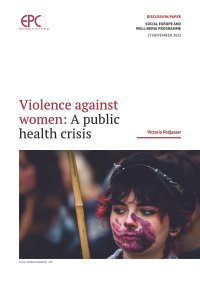By Martina Prpic with Melissa Eichhorn
Children are human beings with rights and dignity. Children's rights are human rights. Owing to their fragility and vulnerability, children also require specific protection, however, which involves providing them with an environment where they are safe from any situation that could potentially expose them to abuse. Violence against children, as defined in Article 19 of the United Nations Convention on the Rights of the Child, can take many forms (physical, sexual or emotional abuse or neglect) and can take place in different settings, such as at home, at school, in institutions, online, etc. Most child abusers are familiar to their victims. The short- and long-term consequences of abuse in terms of human, economic and social costs can be severe and extremely harmful. The extent of violence against children in the EU is difficult to assess, but current estimates give cause for great concern. The nature of the problem depends on various factors, including the personality profiles of victims and perpetrators as well as their surroundings. Certain categories of children, such as those with disabilities, those living in special institutions or those who are unaccompanied migrants, are particularly vulnerable. However, violence is avoidable and preventable. Effective policies to address this problem require a multi-sectoral approach involving different stakeholders at various levels. At international level, the United Nations and the Council of Europe have taken a number of measures to safeguard the rights of children, and more specifically to protect them from violence. The Convention on the Rights of the Child is crucial in this effort. According to its Article 19, children are entitled to protection from all forms of violence, and Member States are required to take all appropriate measures to ensure this protection. In recent years, the EU has been stepping up its measures to protect children. With the entry into force of the Lisbon Treaty, child protection has been recognised as a specific EU goal. While Member States are primarily responsible for child protection systems, the EU also plays an important role, since it is required to promote initiatives to protect children's rights. Its actions directly influence the relevant laws and policies implemented by the Member States in this area. Various parties are involved in raising awareness about violence against children, the importance of effective EU support for national child protection initiatives and the mainstreaming of child protection. Through its numerous initiatives, such as the continuously renewed EU strategy on the rights of the child and the 2024 Commission recommendation on integrated child protection systems, the EU continues to emphasise its commitment to protecting children and supporting Member States' actions and the exchange of best practice.
Brussels: EPRS | European Parliamentary Research Service, 2024. 31p.




